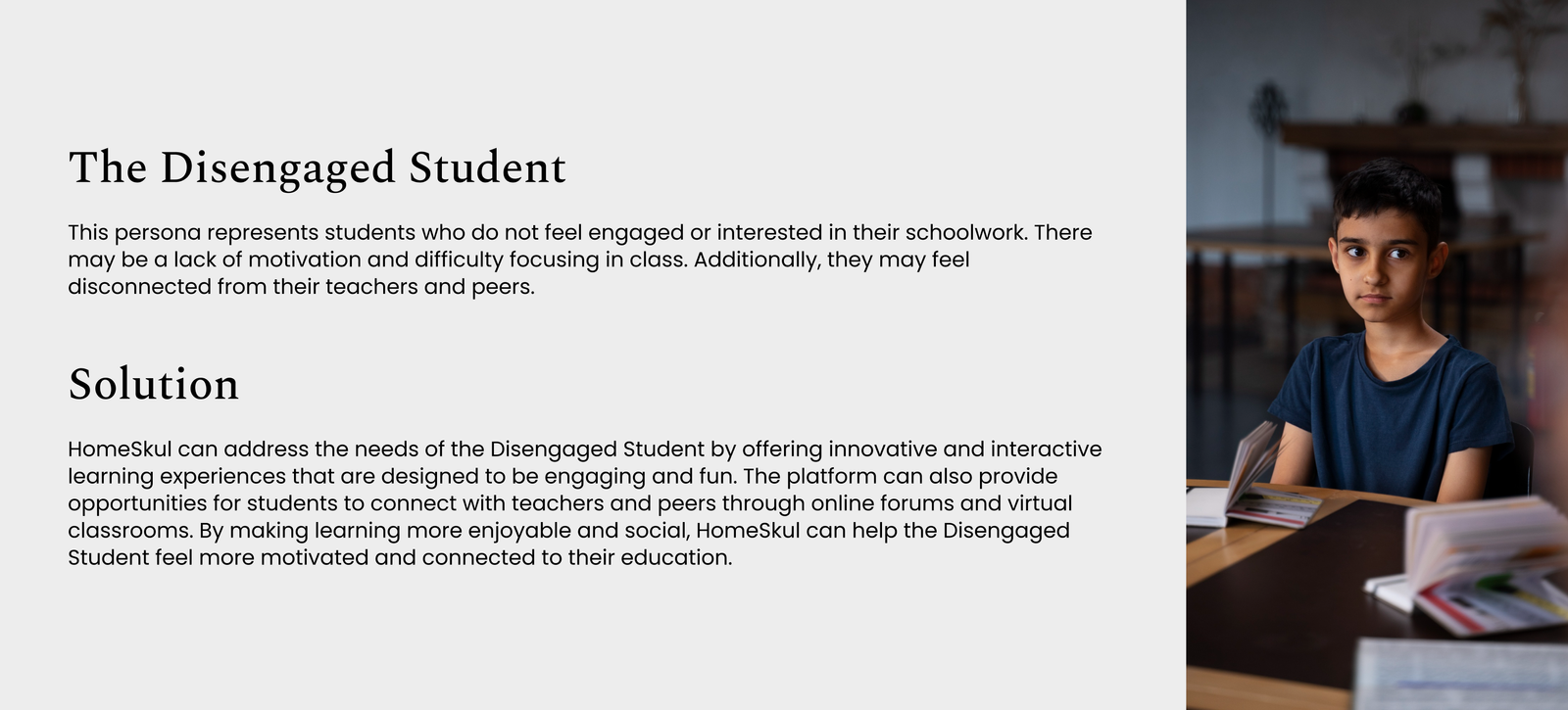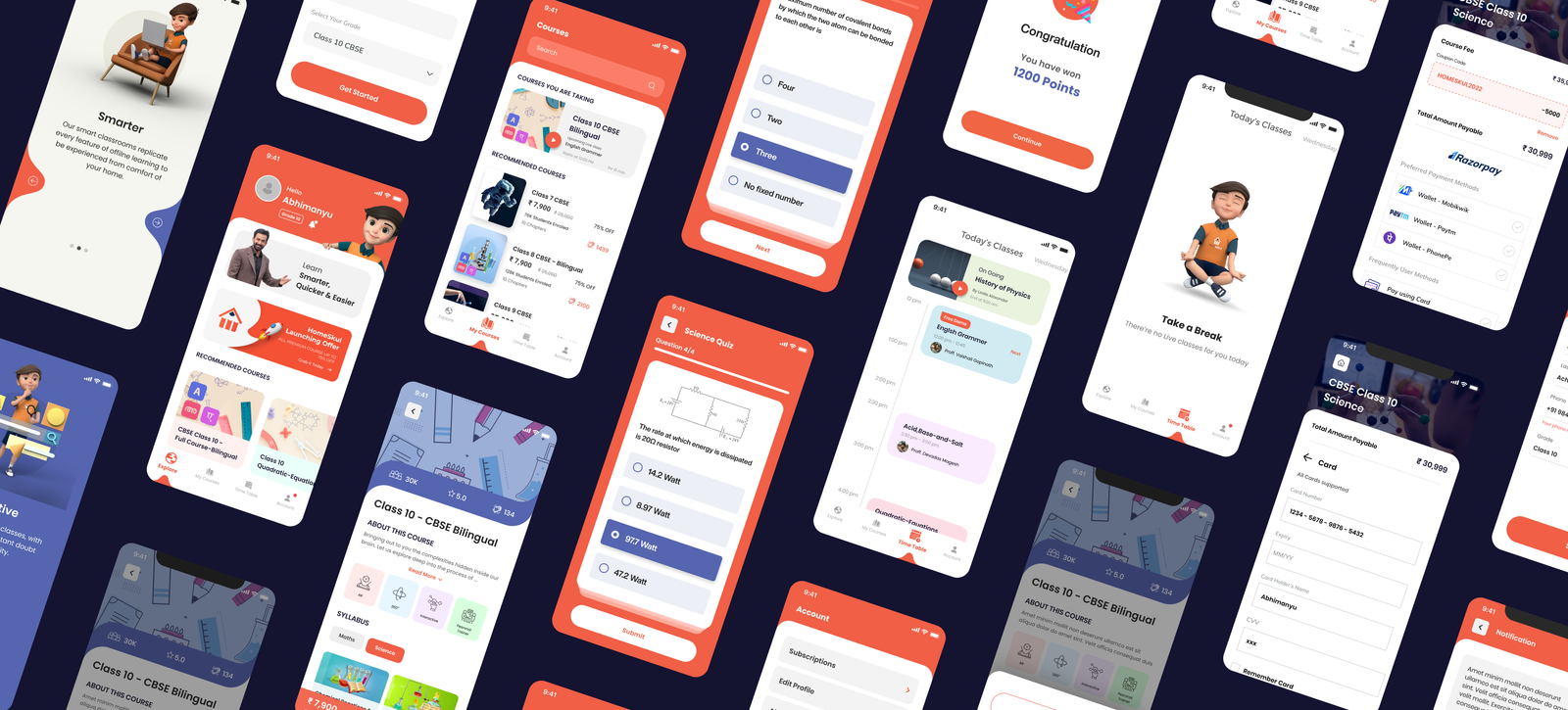HomeSkul is a one-of-a-kind EdTech platform dealing in the k12 segment. Vision is to become the sole choice of Semi-urban and Rural communities for qualitative, innovative and personalised education.
In contrast to traditional classroom settings, online education often lacks face-to-face interaction. As a result, students may feel isolated and have limited opportunities for immediate feedback, real-time discussions, and in-person social interaction with peers and teachers.
Time management skills, self-discipline, and motivation are required for online learning. With online education's flexibility and autonomy, some students may find it hard to stay focused, meet deadlines, and manage their study schedules without direct supervision.
Direct and timely communication between students and teachers may be more difficult with online education. Online environments can make asking questions, seeking clarification, or receiving individualized support more challenging. As a result, the depth of understanding and effectiveness of learning can be affected.
Online assessments can present challenges when it comes to ensuring academic integrity. The absence of direct supervision increases the risk of cheating or academic dishonesty. It takes careful planning and implementation to develop secure and reliable assessment methods in an online environment.
Technical issues can arise with online education platforms and tools, such as connectivity issues, software glitches, and compatibility problems. Communication and collaboration can be hampered by these challenges, which can disrupt the learning process, frustrate students and teachers, and disrupt the learning process.
In India, more than 22% more people are learning online during the pandemic. Our customer's objective was to create the learning platform "HomeSkul" as quickly as possible and release it to the public.


In the 3 Dimensional approach, Students receive 24/7 subject support, a teacher who specializes in their subject area, and a personal mentor. As a result, students are able to achieve their educational goals and become empowered to achieve great things.
Through the application of concepts and theories in real-life situations, students can create an experiential learning experience based on the environment in which they live.
Virtual reality can be used to simulate scientific experiments. With AR-enabled devices, students are able to manipulate virtual objects, observe chemical reactions, explore physics principles, or dissect virtual specimens. This allows students to conduct hands-on experiments and visualize abstract concepts in a safe and cost-effective manner.
Through every cycle of the learning process, students are provided with a 360° learning approach. Every module should focus on providing the most effective materials, learning contexts, assessments, and corrective measures. As the name suggests, this is a comprehensive approach to education that incorporates a variety of dimensions and facets of the learning process. This program is designed to provide students with a well-rounded and holistic learning experience.
This program emphasizes the development of each student on an individual basis. Students are assigned a personal mentor who will monitor their learning journey and provide assistance throughout their studies.
Student outcomes can be improved through assessment tools such as Chapter Tests, Revision Tests, and Remedial Tests by identifying and overcoming any learning obstacles.





